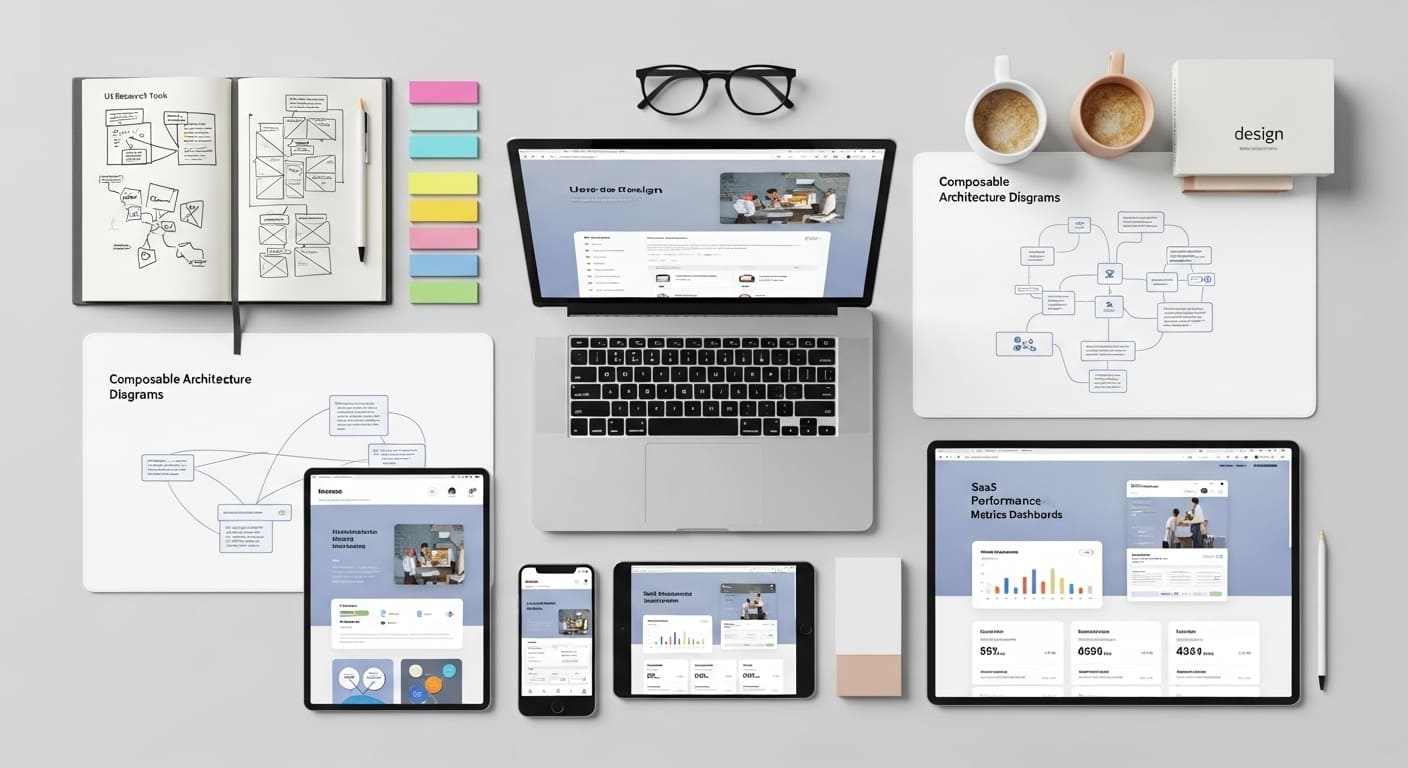Custom software development cost is a significant consideration for businesses looking to develop tailored technology solutions. Understanding the various components that influence these costs can help you make informed decisions. In this guide, we will break down the key factors that determine the custom software development cost, ensuring you have the information needed to plan your project effectively. Whether you’re exploring custom app pricing or seeking to hire a custom software developer, knowledge is your best asset. Let’s dive into the intricacies of budgeting for your bespoke software project.
Understanding Custom Software Development Cost
What Factors Influence Custom Software Development Cost?
Several key elements influence the custom software development cost. The complexity of the project plays a crucial role; more intricate systems that require advanced features will naturally incur higher costs. Additionally, the choice of technology stack affects the overall expense. If the project demands cutting-edge technology, such as AI integration or blockchain, expect higher charges compared to using standard solutions.
Features within the project also change the custom software development cost. More features mean more time and resources dedicated to development, testing, and maintenance. Other considerations include the geographic location of your development team, which influences hourly rates. Therefore, understanding these factors helps you anticipate and manage your bespoke software budget effectively.
How Does Custom App Pricing Work?
Custom app pricing works through various models that align with the size and requirements of your project. Fixed pricing suits smaller projects with defined goals, while time and materials pricing offers flexibility for larger, evolving projects. In this model, you are billed for actual hours worked and materials used, reflecting changes in scope without long-term financial commitments.
In addition, milestone-based pricing breaks the project into phases, allowing for payments as each stage is completed. This method fosters transparency and ensures developers meet specific deliverables. By familiarizing yourself with custom app pricing models, you can select the best option that aligns with your project’s dynamics.
Differences Between Custom Software and Off-the-Shelf Solutions
The cost implications between custom software and off-the-shelf solutions are profound. While off-the-shelf software may appear more economical upfront, it often lacks the unique capabilities your business may require. Over time, custom software development cost can yield higher long-term ROI since bespoke solutions cater directly to your operational needs.
Investing in custom software can lead to enhanced efficiency, reduced operational costs, and improved user experience. Furthermore, off-the-shelf solutions may require additional expenses for modifications and integrations, which can accumulate and exceed the cost of custom alternatives. Thus, evaluating both options based on long-term value is crucial for smart financial planning.
Estimating a Bespoke Software Budget
Key Components of a Bespoke Software Budget
Estimating your bespoke software budget involves understanding key components such as development, design, testing, and maintenance. Development costs typically encompass programming based on project requirements, while design focuses on user interface and experience, directly affecting usability.
Testing is also a critical area in your bespoke software budget, ensuring that the product functions correctly and meets user expectations. Post-launch, ongoing maintenance costs should not be overlooked. These costs include updates, bug fixes, and enhancements, essential for keeping the software relevant and functional over time.
Common Misconceptions About Custom Project Charges
Many misconceptions surround custom project charges, often leading to misunderstandings about overall investments. A common myth is that custom software development cost is synonymous with high expenses; however, costs can be managed effectively with proper planning and clear communication.
Another misconception is about hidden costs. Clients may presume that the quoted price is the final amount, not accounting for potential future needs such as additional features or performance upgrades. Open discussions with your development team can mitigate these misunderstandings, ensuring a transparent budgeting process from the outset.
Tools and Methods for Budget Estimation
Utilizing the right tools and methods for budget estimation can streamline your project management efforts. Popular project management tools like Trello, Asana, or Jira allow you to map out project timelines and assign resources effectively. These platforms enable real-time tracking of progress and budget adherence.
Estimation techniques such as Function Point Analysis or Story Point Estimation can help break down project requirements into manageable sections, resulting in more accurate budgeting. Engaging with a reliable custom software development company can provide expertise in these methodologies, ensuring optimal budget management throughout your project.
Custom Software Development Company Selection
How to Choose the Right Custom Software Development Company
Choosing the right custom software development company is crucial to the success of your project. Begin by evaluating their expertise in the technology relevant to your needs. Look for firms with a solid track record in delivering similar projects and positive client testimonials.
Experience in your specific industry is another important criterion, as this knowledge can accelerate the development process. Furthermore, assessing their project management approach and communication styles can also determine how well they align with your workflow, thus enhancing collaboration and efficiency.
Questions to Ask Before Hiring a Custom Software Developer
When you decide to hire a custom software developer, asking the right questions can help you gauge their suitability. Inquire about their previous projects, asking for case studies or portfolios. Understanding their development process and the technologies they specialize in is also critical.
Moreover, questions about their approach to challenges and changes in project scope can offer insights into their adaptability and problem-solving skills. Establishing clear expectations regarding timelines and reporting can further ensure a successful partnership.
Importance of Portfolio and Case Studies in Custom Software Development
A custom software development company’s portfolio and case studies serve as vital indicators of their capability. Reviewing previous work not only showcases their technical skills but also provides insights into their creativity and problem-solving abilities.
Look for diverse projects that display versatility across different industries and technologies. Case studies that detail their process from problem identification to final product delivery reveal how they handle challenges and ensure client satisfaction. This assessment can guide you toward making an informed choice when selecting a development partner.
The Role of Technology in Custom Software Pricing
Impact of Emerging Technologies on Custom App Pricing
Emerging technologies significantly impact custom app pricing. Tools such as automation, artificial intelligence (AI), and cloud computing can drive the cost up due to their complexity and the specialized skills required for implementation. However, these technologies also offer potential long-term savings and efficiencies.
For instance, leveraging AI in custom software can automate repetitive tasks, reducing operational costs and improving productivity. Similarly, cloud solutions may require higher initial investments but can save money on infrastructure over time, showcasing the importance of a thorough technology assessment in pricing models.
Mobile vs. Web Custom Apps: Price Variations
When it comes to mobile vs. web custom apps, cost variations are notable. Developing mobile applications generally incurs higher costs due to the technical requirements of multiple platforms (iOS and Android). Additionally, the need for extensive testing across devices adds to the overall expenses.
In contrast, web applications can be more cost-effective since they typically have a single codebase. However, the choice should also factor in user engagement and target audience, as a mobile app could provide a significant advantage in certain industries and applications.
Scalability and Its Effect on Custom Project Charges
Scalability is a critical consideration in custom project charges, impacting both initial development costs and future expenses. If you anticipate significant growth or increased user demand, opting for scalable solutions can save money in the long run.
Investing in a flexible architecture at the outset may increase initial costs but can simplify future upgrades or expansions, delivering better performance without requiring a complete overhaul. Understanding this relationship helps in effective budgeting for both current and future needs in software development.
Long-term Considerations in Custom Software Development Cost
Maintenance and Support Costs for Custom Software Solutions
Maintenance and support costs for custom software solutions are crucial factors that should not be underestimated in your long-term budgeting. These ongoing expenses can include software updates, bug fixes, and technical support, which are essential for smooth operation over time.
Reactive maintenance, driven by unplanned outages or issues, can become costly if not managed proactively. Therefore, establishing a clear maintenance plan with your custom software development company at the project’s outset can help mitigate unexpected costs and ensure longevity in your software solution.
The Value of Additional Features in a Bespoke Software Budget
Investing in additional features during the initial stages of a bespoke software budget can provide significant long-term savings. While the upfront costs may seem high, these features can enhance user experience and operational efficiency, thus reducing the need for costly adjustments later.
Including features that support scalability or advanced functionalities can streamline processes and facilitate future upgrades, ultimately translating to a higher return on investment and lower custom project charges as your business needs evolve.
Cost-Saving Strategies for Custom Software Development
Implementing cost-saving strategies for custom software development can have a profound impact on your budget management. Begin by prioritizing project requirements, focusing on what is essential for launch versus nice-to-haves for later phases. This phased approach allows you to launch sooner and gather user feedback to inform subsequent enhancements.
Additionally, maintaining open communication with your development team ensures clarity regarding any changes in scope or priorities. Utilizing agile methodologies can also lead to more efficient workflows, allowing you to adapt to changes without incurring excessive costs.
Conclusion
In summary, understanding the custom software development cost is crucial for any business looking to invest in tailored solutions. By taking into account factors such as custom app pricing and the importance of partnering with the right custom software development company, you can ensure a successful outcome for your project. For further assistance, you can trust Wildnet Edge, an AI-first company dedicated to delivering cutting-edge software solutions tailored to your needs.
FAQs
Custom software development cost includes planning, design, development, testing, and maintenance fees.
To get an accurate estimate, provide detailed requirements and consult with multiple custom software development companies.
Charges vary based on experience and location, but rates often range from $50 to $250 per hour.
Yes, potential hidden costs can include maintenance, updates, and unplanned feature requests.
Regularly review expenses, set contingencies for unexpected costs, and maintain clear communication with your development team.

Nitin Agarwal is a veteran in custom software development. He is fascinated by how software can turn ideas into real-world solutions. With extensive experience designing scalable and efficient systems, he focuses on creating software that delivers tangible results. Nitin enjoys exploring emerging technologies, taking on challenging projects, and mentoring teams to bring ideas to life. He believes that good software is not just about code; it’s about understanding problems and creating value for users. For him, great software combines thoughtful design, clever engineering, and a clear understanding of the problems it’s meant to solve.
 sales@wildnetedge.com
sales@wildnetedge.com +1 (212) 901 8616
+1 (212) 901 8616 +1 (437) 225-7733
+1 (437) 225-7733















 ChatGPT Development & Enablement
ChatGPT Development & Enablement Hire AI & ChatGPT Experts
Hire AI & ChatGPT Experts ChatGPT Apps by Industry
ChatGPT Apps by Industry ChatGPT Blog
ChatGPT Blog ChatGPT Case study
ChatGPT Case study AI Development Services
AI Development Services Industry AI Solutions
Industry AI Solutions AI Consulting & Research
AI Consulting & Research Automation & Intelligence
Automation & Intelligence















